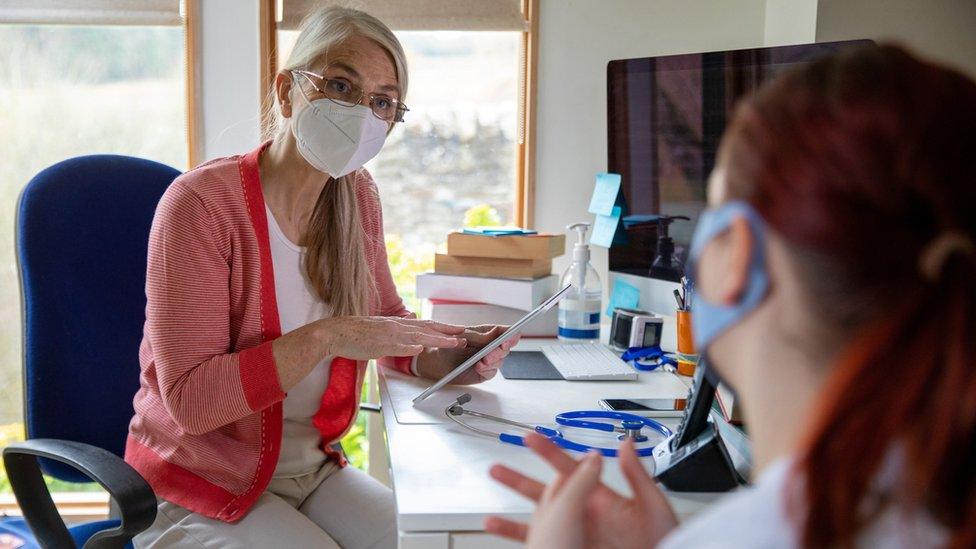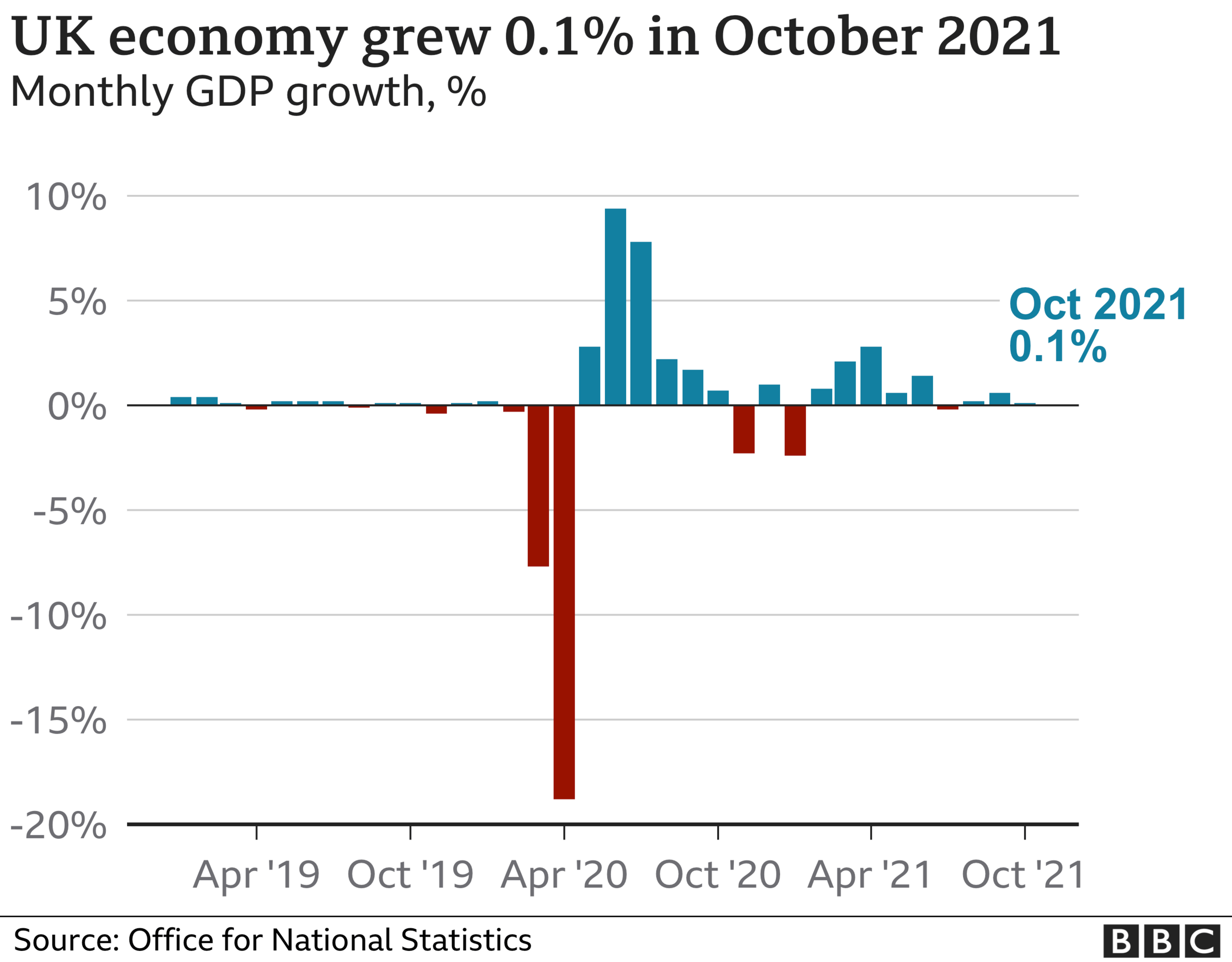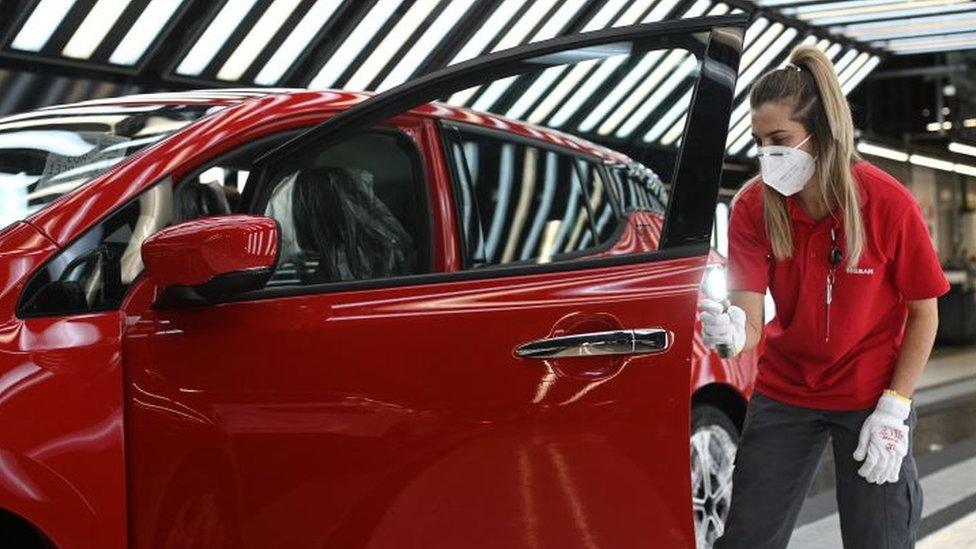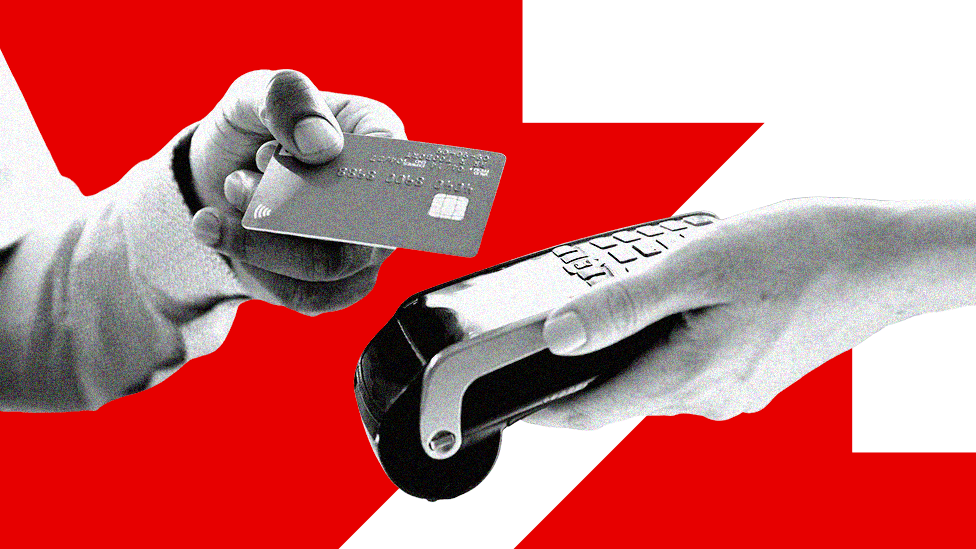Economic growth stutters before impact of Omicron
- Published
- comments

The UK economy grew by just 0.1% in October, official figures show, despite a strong performance by the health sector and second-hand car sales.
A fall in people dining out in restaurants and reductions in oil extraction and gas use meant growth came in lower than expected.
Growth was stalling even before the emergence of the Omicron variant.
One economist said the figures showed the "steam has well and truly been taken out of the UK economic recovery".
Maike Currie, investment director at Fidelity International, warned October might be the "closest the economy gets to reaching 'normal levels' until deep into 2022".
"Supply chain issues, worker shortages and surging inflation put the dampeners on growth in October," she said.
Ms Currie added there was a "creeping sense of déjà vu" over the impact Covid was having on the economy, with the government reintroducing some coronavirus restrictions in a bid to limit the spread of the new variant.
"Workers are heading back to their kitchen tables and the big festive season that retailers and the hospitality sector had their hopes pinned on - while starting on a high during Black Friday - might not have as much sparkle as hoped," she said.

The Office for National Statistics (ONS) said the economy was still 0.5% below pre-pandemic levels, but added the services sector had returned to pre-pandemic levels.
That has been driven a growth in GP face-to-face appointments, and an increase in staff employed in cleaning, building and security jobs. Art and entertainment services also increased as theatres full reopened.
The slower overall economic growth has led to predictions the Bank of England will not put up interest rates next week.
Susannah Streeter, senior investment and markets analyst at Hargreaves Lansdown, said although a rate rise couldn't be completely ruled out, "most bets are off that the Bank will push them up so soon", given the latest economic figures and uncertainty surrounding the Omicron coronavirus variant.
She said a rate rise in February was "more likely to be on the table, as the inflation kettle is set to be whistling loudly by then", unless further Covid restrictions were put in place.
Liz Martins, UK economist at HSBC said the latest figures on the economy were "a little bit weaker than expected", with economists expecting a 0.4% rise in October.
In September, economic growth was 0.6%.
Ms Martins told the Today programme the "economy was stuttering a little bit", despite the emergence of Omicron, which was largely due to supply chain issues and material and product shortages.
"It's public sector services, like those GP appointments, that's driving growth," she added. "So, a little bit of private sector weakness here, no growth in manufacturing, and a fall in construction.
"The recovery is on pause in December at least, and hopefully we'll be able to restart in the New Year."
The ONS said the strong services output was due to the "continued rise" of face-to-face appointments at GP surgeries in England.

What is GDP and how does it affect me?
GDP or Gross Domestic Product is one of the most important ways of showing how well, or badly, an economy is doing.
It's a measure - or an attempt to measure - all the activity of companies, governments and individuals in an economy.
In the UK, new GDP figures are produced every month, but the quarterly figures - covering three months at a time - are the most widely watched.
In a growing economy, quarterly GDP will be slightly bigger than the quarter before, a sign that people are doing more work and getting (on average) a little bit richer.

Grant Fitzner, ONS chief economist, said the "UK health sector again grew strongly while second-hand car sales and employment agencies also boosted the economy".
However, Mr Fitzner said the construction industry saw its biggest drop since April 2020, with "notable falls in house building and infrastructure work, "partly driven by shortages in raw materials".
Though the health sector was the main driver behind October's growth in services, other industries such as travel and entertainment also increased.
Responding to the figures, Chancellor of the Exchequer, Rishi Sunak said the government had "always acknowledged there could be bumps on our road to recovery".
"We have still been recovering quicker than expected, with more employees on payrolls than ever before and redundancies remaining low," he added.


While you always have to be cautious not to over-interpret the official ONS estimates for economic growth over just one month, if the figures are borne out they show the economy slowing almost to a stop in October.
This was the month that began with petrol stations that couldn't get enough petrol and energy prices jumping. It had previously been expected that the economy might be back to its pre-pandemic level by then.
And remember - this is before the economy was hit by the Omicron variant and new restrictions.
The chances that growth in 2021 will hit the level predicted in the Autumn Budget and Spending Review of 6.5% now look vanishingly small.
And some economists are now saying it's touch-and-go whether we continue to grow in December - or head back into an economic contraction.
The chances of a rise in interest rates to tame inflation in December, already low before this morning's news, are now even lower.
A stagnating economy, combined with rapidly rising inflation and restrictions discouraging travel, is an unpleasant prospect over Christmas both for businesses and households.
Especially without any new emergency support.

- Published10 August 2021

- Published11 November 2021

